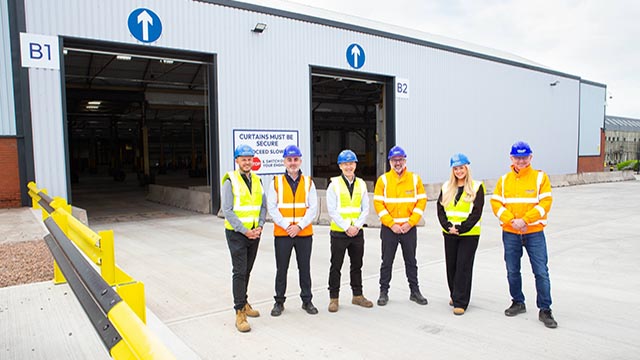EDITOR’S COMMENT Is this it? Are we out of the doldrums? Is real estate back to its normal self? Has the sector bounced back? Is this the start of reasons to be cheerful?
It has been a week of almost nothing but positive news for the listed sector, with Landsec and British Land both reporting big swings back into the black after years of losses, leisure firms that had shut scores of restaurants and bars now hoping to get back on the expansion trail, occupiers finding confidence again and committing to new space, and take-up figures – for London at least – back above the five-year average.
Some 4m sq ft in the capital is currently under offer, said Landsec boss Mark Allan this week, showing “clear demand” for offices and clear evidence that the office is definitely not dead.
For both Landsec and British Land, a change in strategy was credited as reasons for their strong performances. That and a stronger-than-anticipated economic recovery.
Offices led the way for both firms. British Land’s Simon Carter said the REIT had seen its busiest leasing period in more than a decade over the six months, an experience echoed by Landsec’s Allan, who said occupiers that had put decisions on hold were now committing to space.
Allan was so confident about the future that he said the REIT had moved on from its initial “sell-and-shore-up” tactic to a “spend-and-seize-the-opportunities” approach – as evidenced through its acquisition of a 75% stake in MediaCity and proposed takeover of U+I.
BL is being less flashy in its response to the recovery, focusing on its existing development portfolio and ploughing capital into that.
It’s the first time in all my years here at EG that the two REITs have felt quite different. Maybe that’s a good thing. Two clear strategies executed differently. Both seem to be paying off at the moment.
Equally positive news this week came in the form of Landsec’s announcement of a decarbonisation fund. The REIT has put a number on how much it believes it needs to spend on fixing its embodied carbon issues.
And the really good news for any other property owner out there is, it isn’t very much. Landsec’s calculations put the number at £135m. That’s around 1% of the value of its portfolio, which is currently worth £11bn.
If we apply that 1% to the value of UK commercial real estate in its entirety, that means we need around £1bn of investment to fix real estate’s contribution to the climate crisis. A billion quid shouldn’t be hard to raise, right? We see funds multiple times that size launched every single year.
I am, of course, being just a touch facetious. I’m sure Landsec has run the numbers robustly and it is commendable that it is making sure it invests in its existing real estate and finds ways of reducing its energy usage. Identifying ways to reduce carbon emissions by 24,000 tonnes over the coming nine years should be celebrated.
But this won’t be enough. And this shouldn’t just be Landsec. None of this gets fixed if everyone isn’t investing money into decarbonising the assets we have. And none of this matters if the users of those properties aren’t also decarbonising their activities. None of this matters if we don’t decarbonise the way we service those properties, get to those properties, and maintain those properties.
Imagine if we really could fix climate change – or real estate’s 40% contribution to it – with as little as £1bn. Now, that really would be a reason to be cheerful.
To send feedback, e-mail samantha.mcclary@eg.co.uk or tweet @samanthamcclary or @EGPropertyNews











